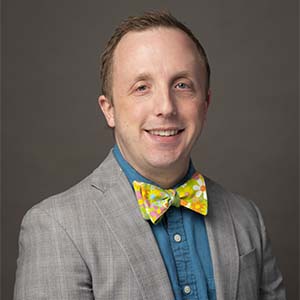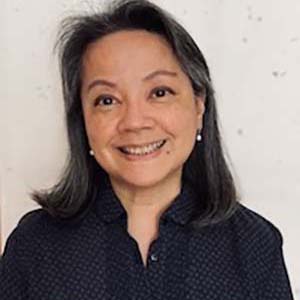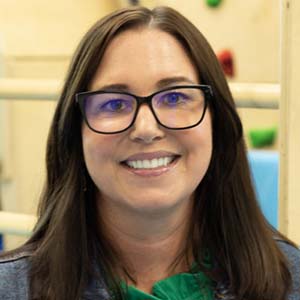Striving to recruit a qualified student population that reflects the diversity in our region and society.
Our program offers a comprehensive and rigorous educational experience that prepares graduates to excel as advanced practitioners, researchers, leaders, and advocates in the field of occupational therapy.
Why Study Occupational Therapy at SHP?
Our program developed a solid foundation for OT practice and scholarship over a chnaging health care environment. Our graduates qualify for leadership roles, advanced clinical positions, research positions, or academic positions in universities and colleges.
$96,370
* average salary of a Occupational Therapy graduate.
* U.S. Bureau of Labor Statistics
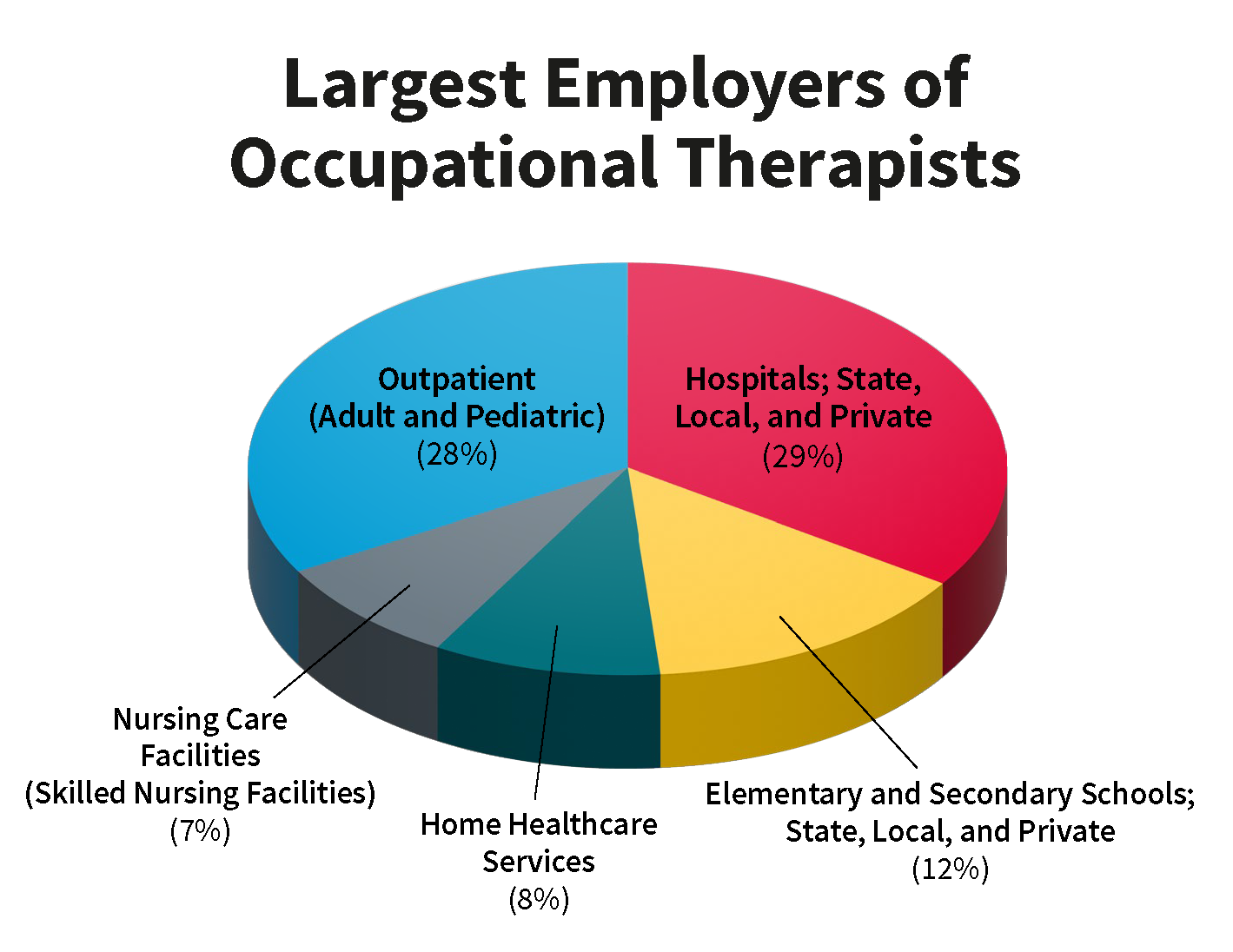
Program Highlights
Our entry-level program prepares students as generalists to provide high quality occupational therapy services to; serve their patients, be responsive to changes in health care, expand care to underserved communities, and engage in scholarship/research in occupational science and occupational therapy.
- Our clinical doctorate program focuses on preparing practitioners with advanced clinical and leadership skills.
- This is a an entry-level clinical doctoral program, so no dissertation is required .
- Students can be involved in our community clinics.
- Students will complete their degree in 8 semesters.

Learning Beyond the Classroom
Our curriculum is purposefully designed to prepare students as generalists by providing broad exposure to contemporary practice settings such as schools, hospitals, community centers, and long-term care facilities. This exposure covers various practice areas, including emerging fields, ensuring that our students are equipped to work with diverse populations, from infants and children to adolescents, adults, and older adults, addressing both physical and mental health conditions.
We focus on emerging, innovative practices that align with New Jersey’s needs, our faculty’s expertise, the School of Health Professions, and Rutgers Health. Our program partners with organizations supporting underserved communities, including services for the homeless, day rehabilitation for those with developmental disabilities, senior centers, groups aiding life transitions for those with disabilities, and organizations assisting veterans. Students gain valuable experience through fieldwork, research, and capstone projects. Our goal is to expand practice to serve individuals where they live, work, and play.
Program Overview

Amiya Waldman-Levi, Ph.D.
The occupational therapy doctoral degree (OTD) is a 109-credit, entry-level program that will prepare students as generalists to provide high quality occupational therapy services to serve their patients, to be responsive to changes in health care, to expand care to underserved communities, and to engage in scholarship/research in occupational science and occupational therapy.
The program will admit approximately 30 students each year, to complete 8 consecutive semesters, where summers are included as a separate semester (approximately 32 courses including 6 months of fieldwork). Fieldwork will be integrated throughout the curriculum (for a total of 28 weeks plus the doctoral experiential internship).
This is not a Ph.D. program; so, no dissertation is required, however students will engage in scholarship as part of their doctoral experiential internship which will be disseminated through publication or presentation. The purpose of a clinical doctorate program, and the 14-week doctoral experiential internship, is to focus on preparing practitioners with advanced clinical and leadership skills.
Students can be involved in our community clinics during graduate school:
The Head Injury Clinic is an interprofessional clinic comprised of Rutgers students and faculty from the OTD, DPT, and SLP programs. It is a pro bono clinic offered to the Newark community once a week during the summer and consists of both individual and group therapy sessions. Students have the opportunity to utilize an Electronic Medical Record, ClinicNote. Students can observe the Head Injury Clinic at the end of year one and apply for the Head Injury Clinic in year two.
The NEXUS Club is a community intervention/transitions club comprised of Rutgers students and faculty from the OTD program. It is a pro bono service offered to the community once a week throughout the year. During the club, students work collaboratively with autistic individuals to develop activities that foster transition skills. Students can join Nexus as early as their first semester in the Rutgers OTD program.
Accreditation
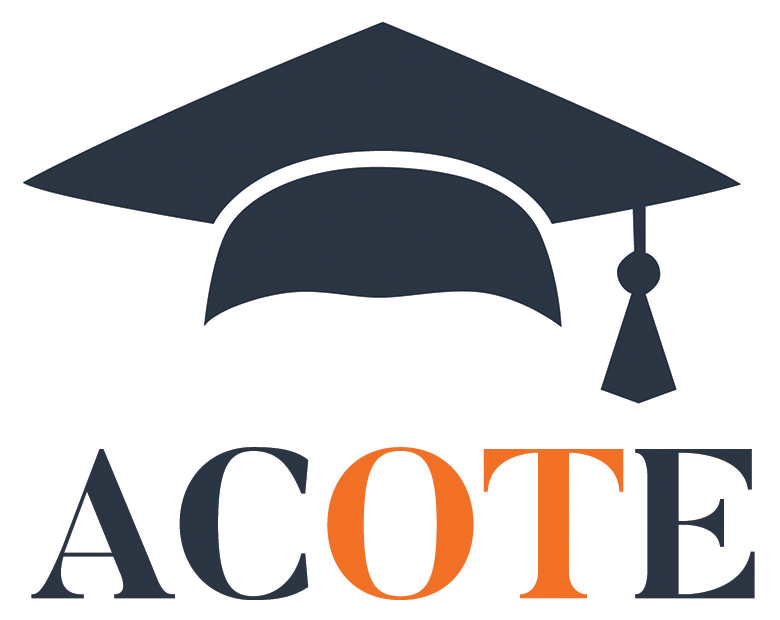 The Occupational Therapy program is accredited by the Accreditation Council for Occupational Therapy Education (ACOTE) of the American Occupational Therapy Association (AOTA), located at 7501 Wisconsin Avenue, Suite 510E, North Bethesda, MD 20814. ACOTE’s telephone number, c/o AOTA, is (301) 652-6611, its web address is www.acoteonline.org, and the email address is accred@aota.org.
The Occupational Therapy program is accredited by the Accreditation Council for Occupational Therapy Education (ACOTE) of the American Occupational Therapy Association (AOTA), located at 7501 Wisconsin Avenue, Suite 510E, North Bethesda, MD 20814. ACOTE’s telephone number, c/o AOTA, is (301) 652-6611, its web address is www.acoteonline.org, and the email address is accred@aota.org.
Our entry-level professional program is accredited by the Accreditation Council for Occupational Therapy Education (ACOTE®). Our current seven-year accreditation period is from 2024-2030/2031.
After successful completion of this exam, the individual will be an Occupational Therapist, Registered (OTR). In addition, all states require licensure in order to practice; however, state licenses are usually based on the results of the NBCOT Certification Examination. Note that a felony conviction may affect a graduate’s ability to sit for the NBCOT certification examination or attain state licensure.
In addition, Students must complete 24 weeks of Level II fieldwork as well as an individual 14-week capstone experience within 12 months following the completion of the didactic portion of the program. The doctoral capstone experience must be started after completion of all coursework and Level II fieldwork as well as completion of preparatory activities defined in 2018 ACOTE OTD Standard D.1.3.
State Authorization and Professional Licensing Disclosure:
The Occupational Therapy Doctorate is accredited thus the program will meet the professional licensure requirements of all states.
Updated: April 10, 2025
Rutgers University Occupational Therapy Doctorate program graduated its first class in May, 2024. The total number of graduates from the program was 23 with an overall graduation rate of 96%.
Standard A.4.2. Publication of Program Outcomes
| Graduation Year | Student Entering/Graduating | Graduation Rate |
|---|---|---|
| 2025 | 15/15 | 100% |
| 2024 | 24/23 | 96% |
National Board for Certification in Occupational Therapy (NBCOT) program data results: (https://www.nbcot.org/Educators-Folder/SchoolPerformance) nbcot.org
Admission Criteria
The OTD program admissions process uses a holistic approach to admissions valuing both cognitive and non-cognitive traits to evaluate the strength of applicants to ensure a balanced admissions decision.
Non-cognitive traits are demonstrated through things such as, work experience, volunteerism, responses to written and video recorded questions, and statements given on OTCAS that show your skills as a communicator, collaborator, health advocate, and professional. Cognitive traits or academic elements include standardized test scores and your grades in prerequisite courses.
Application to the OTD program must be submitted through the Occupational Therapy Centralized Application Service (OTCAS) at (https://otcas.liaisoncas.com).
- Official transcripts from every accredited US college or university which you have attended
- You must have a bachelor’s degree, in any field, from an accredited institution to be considered for admission to this program or be scheduled to receive your degree prior to July 1
- Prerequisite courses completed prior to July 1
- TOEFL scores (must be at least 100 for the internet (iBT) version) and foreign transcripts from WES or CCE (international applicants only)
You must provide evidence of completion, a grade of B or better is encouraged, however we will consider all courses and grades when determining an applicant’s qualifications.
If your class fulfills a requirement but is under a different title, please upload the syllabus to the OTCAS website under the supporting information quadrant (documents), where it gives you the option to upload your syllabus.
Natural Sciences (12 credit minimum)
- Human Anatomy w/ Lab
- Human Physiology w/ Lab
- Can take Human Anatomy & Physiology I & II w/Lab
Additional natural science courses might include: Kinesiology, Chemistry, Biology or Physics.
Social Sciences (9 credit minimum)
- General Psychology
- Abnormal Psychology
- Developmental Psychology (preferably across a lifespan)
Expository Writing (3 credit minimum)
- Note that we will accept expository writing classes, English composition classes, or other courses from the English department that required extensive writing.
Statistics (3 credit minimum) Course can be taken from any of the following departments:
- Psychology
- Sociology
- Anthropology
- Math
- Sciences
- Epidemiology or Biostatistics
Humanities (6 credit minimum) Courses from two (2) different categories:
- Literature
- Religion
- Philosophy
- Ethics
- Art History or Appreciation
- Music
- Theatre
Medical Terminology
Complete a sequence or course. May be taken for credit or no credit. You can add a medical terminology certificate in the supporting information quadrant (documents).
Tuition & Fees
| Current Cost | OTD Program 2024 Fall Semester | OTD Program 2025 Spring Semester | OTD Program 2025 Summer Semester | OTD Program 2024-2025 Academic Year |
Total Cost of Program (3 year program) 2024-2027 |
|---|---|---|---|---|---|
| Tuition | Yr. 1 13,350 Yr. 2 13,350 Yr. 3 10,680 |
Yr. 1 14,240 Yr. 2 10,680 Yr. 3. 10,680 |
Yr. 1 13,350 Yr. 2 10,680 |
40,940 34,710 21,360 |
97,010 |
| Student Fee | Yr 1 330/6057 Yr 2 340/4212 Yr 3 135/5702 |
16,776 | |||
| Books & Supplies | 1200 | 1200 | 1200 | 1200 | 2400 |
| Loan Fees | 0 | 0 | 0 | 0 | 0 |
| Distance Ed Fees | 0 | 0 | 0 | 0 | 0 |
| Total | Yr 1 48,527 Yr 2. 39,262 Yr 3 28,397 |
116,186 |
Student Fees:
OTD student Fee,School Fee,Campus Fee, Technology Fee, Health Insurance, Activity Fee
Illustration is based on 2024-2025 academic year. In state tuition is 890/credit. Tuition and Fees are subject to change
https://finance.rutgers.edu/sites/default/files/2024-11/SHP_20Grad.pdf
According to FASFA (Free Application for Federal Student Aid), the cost of attendance is defined as total amount of attending the program, which includes tuition and fees, books, supplies, transportation, loan fees as well as fees associated with distance education.
Curriculum
The OTD program is a full time in person program that meets on the Newark Health Sciences campus. All students must have basic computer skills and access to an internet enabled laptop or tablet for class assignments, exams and access to the learning management system.
Requirements for Graduation
Year 1
| Course Number | Description | Credits |
|---|---|---|
| OTDR 5125 Kinesiology |
Movement is analyzed using motor learning, motor control, motor development, biomechanical, and kinesiological theories, and applied principles that contribute to performance of human occupations. | 3 |
| OTDR 5145 Anatomy |
This course covers the fundamentals of gross human anatomy. The primary focus will be on the musculoskeletal, peripheral nervous system, and circulatory system. | 3 |
| OTDR 5225 Foundations & Theory of Practice |
Introduces the core foundations for occupation-centered practice. Emphasis will be on theories that guide occupational therapy practice, professional communication and behavior, therapeutic use of self, clinical reasoning, and task analysis. | 3 |
| OTDR 5235 Occupations, Occupational Science, and Occupational Therapy |
Provides and introduction to the philosophical tenets of occupational science, and their application to occupational therapy, highlighting the complexity of factors which together foster engagement in the occupations throughout life. | 3 |
| OTDR 5445 Intentional Relationship |
Theories and practices of building effective interpersonal communication and transformative group processes using therapeutic relationships. Therapeutic use of self, didactic, group, and application to occupation-centered practice will be addressed. | 3 |
| Semester credits | 15 | |
| Course Number | Description | Credits |
|---|---|---|
| OTDR 5135 Neuroscience |
Expands understanding of the fundamentals of neuroanatomy and neurophysiology to enable interpretation, evaluation and intervention of development, aging, occupational engagement and for neurological disorders. Core neurological functioning principles are applied to practice and occupational engagement. | 3 |
| OTDR 5425 Issues in Professional Practice |
Covers the fiscal, regulatory, ethical, legal, interdisciplinary and cultural aspects that transect practice systems. Address pragmatic clinical reasoning applied to a variety of practice settings. | 3 |
| OTDR 5321 Quantitative-Scholarship & Evidence Based Practice |
This course provides an overview of research designs, with analysis and synthesis of professional literature focused on quantitative research methods. The student will develop professional skills for evidence-based practice, ethics of research, and designing scholarly studies. | 3 |
| OTDR 5245 Fundamentals of Assessment |
An introduction to the psychometrics of assessment tools, methods, scales, procedures, and test interpretation. This foundational course serves to develop a basis for learning about normative data, standardized administration, and specific assessments in future intervention courses. | 3 |
| OTDR 5429 Adult Physical Rehabilitation |
Evaluation and intervention in occupational therapy for adults with neurological, biomechanical and other physical impairments. The focus will be on the application of neurophysiological principles, sensorimotor learning and performance, and specific intervention strategies as related to the young adult through geriatric client. Attention will be given to the environmental context, practice setting and service delivery model. | 3 |
| OTDR 5319 Level I Physical Disabilities |
Level I FW (content intertwined with practice courses)- This course includes practice competency activities to synthesize learning and demonstrate reflective clinical reasoning across the semester coursework. | 1 |
| Semester credits | 16 | |
| Course Number | Description | Credits |
|---|---|---|
| OTDR 5322 Qualitative-Scholarship & Evidence Based Practice |
Analysis and synthesis of professional literature focused on qualitative research methods. Continued development of professional skills for evidence-based practice, ethics of research, and designing scholarly studies. | 3 |
| OTDR 5421 Directed Research I |
Development of clinical research inquiry. Initiate construction of a clinical research problem, by identifying an appropriate research question, complete an evidence-based practice literature review and develop a critically appraised topic to summarize the data, presented to students and faculty. | 2 |
| OTDR 5439 OT Process with Older Adults |
Evaluation and intervention to promote participation in daily life for older adults. Includes understanding of how the aging process affects participation in daily roles and occupations and the application of health and wellness promotion for older adults. The focus will include specific intervention strategies directed to the dimensions of aging including neurophysiological, sensorimotor, cognitive and emotional challenges. | 3 |
| OTDR 5419 Adult Psychosocial and Mental Health Challenges |
Assessment and intervention in occupational therapy for adults experiencing psychosocial challenges are covered. This will include social and psychological theories, occupational roles, cognitive & behavioral strategies, stress management, interests, self-esteem, social conduct, and self-management. Attention will be given to the environmental context, practice setting and service delivery model. | 3 |
| OTDR 5255 Upper Extremity Function, Physical Agent Modalities and Occupational Performance |
Interventions with orthopedic-based upper extremity conditions to optimize functional use of the hand and arm are analyzed. Emphasis on physical aged modalities, orthotics fabrication & application, hand rehabilitation methods along with an introduction to training and utilization of prosthetics and emerging robotics is included. | 3 |
| OTDR 5329 Level I Older Adults |
Level I FW (4 courses) (1 credit each) (4 credits total)(content intertwined with practice courses) | 1 |
| Semester credits | 15 | |
Year 2
| Course Number | Description | Credits |
|---|---|---|
| OTDR 7465 Education in Healthcare and Academic settings (Instructional learning & theory) |
Students explore the role of practitioner as educator, teaching-learning process, education theory, current technological tools, and effective teaching strategies to optimize learning experiences with application in clinical practice, community-based settings and academic settings. | 3 |
| OTDR 6422 Directed Research II |
Expand clinical research skills by developing skills in designing a clinical study by preparing for data collection, including obtaining IRB, establishing contact with data collection sites, writing a grant and designing or determining data collection instruments is conducted. | 2 |
| OTDR 6319 Pediatric I |
Assessment and intervention strategies in occupational therapy for young pediatric populations are covered (neurological, sensory, biomechanical function, conditions & occupational performance child 0-6), including the application of neurophysiological principles, occupations of development, cognitive & behavioral strategies, motor learning, feeding, sensorimotor learning & performance, as related to infants through age 6. Attention will be given to the environmental context, practice setting and service delivery model while developing strategies to implement assessment and intervention. | 3 |
| OTDR 6329 Pediatrics & Adolescents II |
Assessment and intervention strategies in occupational therapy for young pediatric populations are covered (neurological, sensory, biomechanical function, condition & occupational performance child 6-18), including the application of neurophysiological principles, occupational development, cognitive & behavioral strategies, motor learning, feeding, sensorimotor learning & performance, as related to older children and adolescents to a young adulthood. Attention will be given to the environmental context/setting and community-based settings where treatment occurs. | 3 |
| OTDR 6265 Rehabilitation and Assistive Technology |
Principles of assistive and rehabilitation technology application and foundation skills for professionals working with people with disabilities to evaluate products and strategies for their use. | 3 |
| OTDR 6439 Level I Peds and Adolescents |
Level I FW (4 courses) (1 credit each) (4 credits total)(content intertwined with practice courses) | 1 |
| Semester credits | 15 | |
| Course Number | Description | Credits |
|---|---|---|
| OTDR 6519 Level II Fieldwork 1 |
The goal of Level II fieldwork is to develop as a competent, entry-level, generalist occupational therapist. This fieldwork is a 24-week, full time, in-depth experience in delivering occupational therapy services to clients through engaging purposeful and meaningful occupation, research, and administrative activities. The student will see a variety of clients across the lifespan in a variety of settings. | 12 |
| Semester credits | 12 | |
| Course Number | Description | Credits |
|---|---|---|
| OTDR 6455 Health Policy and Advocacy |
An overview of healthcare policy, organization of the health care system, and reimbursement trends related to occupational therapy specifically are studied. Developing foundational skills to interpret and serve as advocates in the healthcare policy formation process for work done by occupational therapists. | 3 |
| OTDR 6422 Directed Research III |
Complete a clinical research project appropriate for an occupational therapy practitioner. The focus is to gain knowledge and skills through the implementation of a clinical research proposal, including initiating participant recruitment, data collection, and data analysis. Students will critically analyze and solve problems encountered during project implementation and present their final projects to faculty and students. The processes will be closely monitored by the instructor of record and faculty research mentors. | 2 |
| OTDR 6429 Occupation-based Practice in the Community |
Apply clinical reasoning skills to explore the determinants of health beyond the physical by taking a systems approach to understanding health and disease and explore occupational engagement in the community. Appreciate the complexity of the roles, advocacy, assessment, community capacity building including consultation skills in community-based practice. | 3 |
| OTDR 6349 Level I Community-Based |
Level I FW (4 courses) (1 credit each) (4 credits total)(content intertwined with practice courses) | 1 |
| OTDR 6715 Doctoral Experiential Development |
Students work with a faculty advisor and Doctoral Experiential/Capstone coordinator to design a doctoral experiential plan. Work is done in conjunction with an advisor to determine an initial focus for their capstone projects, in-depth learning about the planned site, complete a literature review appropriate for the site and capstone project, plan coordination between the capstone proposal and the associated doctoral experiential internship. | 3 |
| Semester credits | 12 | |
Year 3
| Course Number | Description | Credits |
|---|---|---|
| OTDR 7529 Level II Fieldwork 2 |
The goal of Level II fieldwork is to develop as a competent, entry-level, generalist occupational therapist. This fieldwork is a 24-week, full time, in-depth experience in delivering occupational therapy services to clients through engaging purposeful and meaningful occupation, research, and administrative activities. The student will see a variety of clients across the lifespan in a variety of settings. | 12 |
| Semester credits | 12 | |
| Course Number | Description | Credits |
|---|---|---|
| OTDR 7725 Doctoral experiential |
The doctoral experiential develops occupational therapists with advanced skills beyond a generalist in one of the following designated areas: clinical practice, research, administration, leadership, program and policy development, advocacy, education, or theory development. This DEI is integral to acquiring deeper practice-scholar competencies. The students will implement the doctoral experiential development plan design (560 hours over 14 weeks). | 10 |
| OTDR 7325 Doctoral Capstone |
The focus of this course is for students to complete an individually designed culminating project that relates theory to practice and demonstrates synthesis of advanced knowledge gained throughout the curriculum. Students will demonstrate integration with their doctoral experiential component. | 2 |
| Semester credits | 12 | |
| Total Program Credits | 109 |
|---|
FAQs
We will accept up to 40 students in each class.
The OTD coursework and fieldwork will be offered during the day.
The OTD is full time program, classes are held in person on the Newark Health Sciences campus
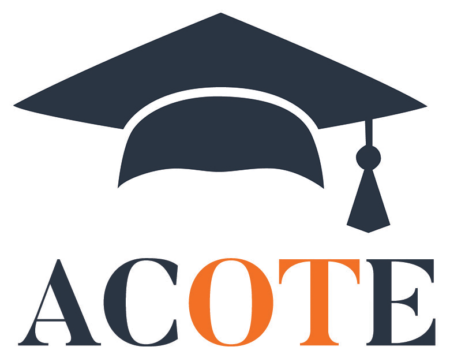 The OTD Program is accredited by the Accreditation Council for Occupational Therapy Education (ACOTE) of the American Occupational Therapy Association (AOTA).
The OTD Program is accredited by the Accreditation Council for Occupational Therapy Education (ACOTE) of the American Occupational Therapy Association (AOTA).
Graduates of the program will be eligible to sit for the national certification examination for the occupational therapist administered by the National Board for Certification in Occupational Therapy (NBCOT). After successful completion of this exam, the individual will be an Occupational Therapist, Registered (OTR). In addition, all states require licensure in order to practice; however, state licenses are usually based on the results of the NBCOT Certification Examination.
Note that a felony conviction may affect a graduate’s ability to sit for the NBCOT certification examination or attain state licensure.
Yes, work study opportunities are available.
Students are required to meet all University insurance, health, and immunization requirements prior to beginning the program and throughout the period of enrollment.
For more information about the Rutgers Occupational Therapy Doctorate Program, please contact:
Occupational Therapy Doctorate Program
Rutgers SHP, SSB, Room 720
65 Bergen Street, PO Box 1709
Newark, NJ 07107-1709
973-972-5996
OTD@shp.rutgers.edu

